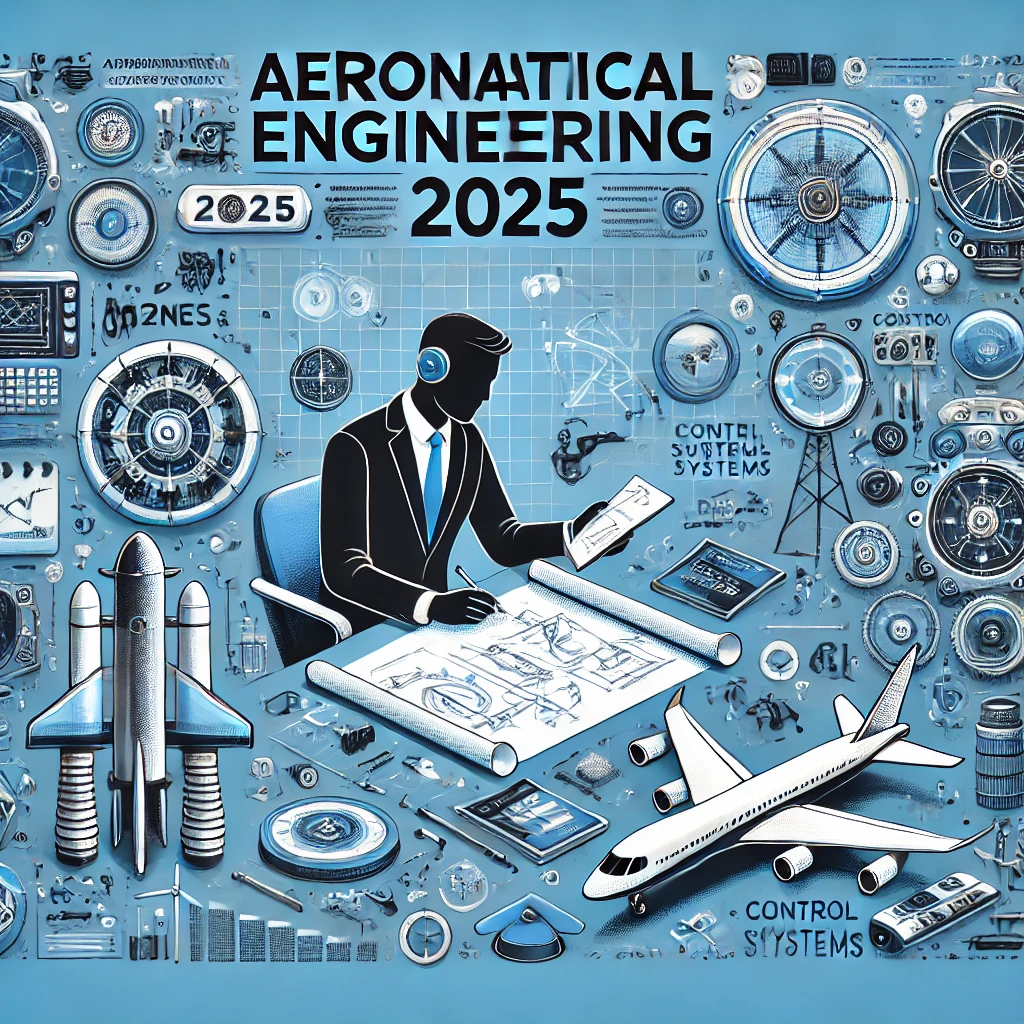Aeronautical Engineering in 2025: Courses, Career Scope, Top Colleges & Salary Insights
Aeronautical engineering is one of the most exciting and challenging fields of engineering that deals with the development, design, testing, and maintenance of aircraft and related systems. As the aviation and defense industries continue to expand globally, aeronautical engineering remains a high-demand career path. In this guide, we’ll explore what makes aeronautical engineering a top choice in 2025, including the required qualifications, career opportunities, top colleges, and salary expectations.
What is Aeronautical Engineering?
Aeronautical engineering is a specialized branch of aerospace engineering focused on the science and technology of flight. It encompasses areas such as:
- Aircraft design and development
- Aerodynamics and propulsion systems
- Avionics and control systems
- Structural analysis and materials
- Flight mechanics and performance analysis
Eligibility and Courses
To pursue a career in aeronautical engineering, candidates typically require:
- Completion of 10+2 with Physics, Chemistry, and Mathematics (PCM)
- Clearance of entrance exams such as JEE Main, JEE Advanced, or state-level engineering exams
- B.Tech/B.E. in Aeronautical Engineering (4 years)
- M.Tech/M.E. in Aeronautical or Aerospace Engineering (2 years)
- PhD in Aeronautical Engineering (for research roles)
Top Colleges for Aeronautical Engineering in India
- Indian Institute of Technology (IIT), Kanpur
- Indian Institute of Space Science and Technology (IIST), Thiruvananthapuram
- Punjab Engineering College (PEC), Chandigarh
- Manipal Institute of Technology
- Hindustan Institute of Technology and Science
- MIT-WPU Pune
Skills Required
- Strong understanding of physics and mathematics
- Problem-solving and analytical thinking
- Technical software knowledge (CATIA, MATLAB, CFD tools)
- Attention to detail and safety regulations
- Creativity and innovation in design
Career Opportunities
Aeronautical engineers are employed in both public and private sectors. Common job profiles include:
- Aeronautical Engineer
- Aircraft Design Engineer
- Flight Test Engineer
- Avionics Engineer
- Maintenance Engineer
- Research Scientist (DRDO, ISRO)
Top Employers
- HAL (Hindustan Aeronautics Limited)
- ISRO (Indian Space Research Organisation)
- DRDO (Defence Research and Development Organisation)
- Airbus and Boeing
- GE Aviation
- Air India, Indigo, and other airline maintenance departments
Average Salary and Growth
- Entry-level (0–2 years): ₹3–6 LPA
- Mid-level (3–7 years): ₹6–12 LPA
- Senior-level/Research roles: ₹12–25 LPA
Future Scope of Aeronautical Engineering
With the global push for aerospace innovation, sustainable aviation, and increasing defense budgets, aeronautical engineers are in high demand. Emerging areas include:
- Unmanned Aerial Vehicles (Drones)
- Green aviation technologies
- Hypersonic aircraft development
- Space exploration and commercial space travel
Conclusion
Aeronautical engineering offers a thrilling and impactful career for those passionate about flight and innovation. With the right education, skill set, and determination, graduates can play a vital role in shaping the future of global aviation and aerospace. Whether in research, design, or operations, the sky is not the limit—it’s just the beginning.
Subscribe to our blog for the latest updates on engineering careers, aerospace innovations, and education opportunities in 2025.



